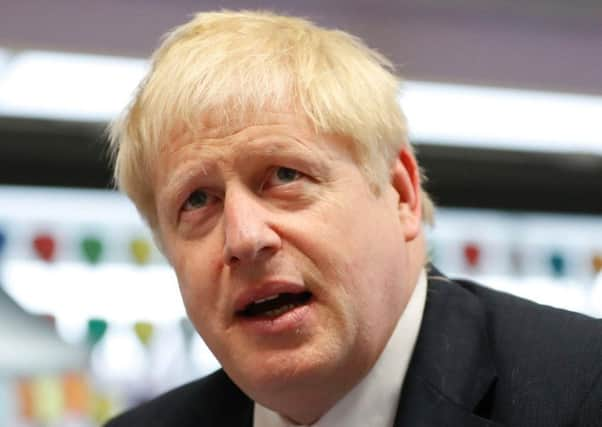Brexit: Boris Johnson bids to fast track bill through Commons in three days


Leader of the House Jacob Rees-Mogg told MPs debate on the Withdrawal Agreement Bill (WAB) would start on Tuesday with ministers hoping to get it through all its Commons stages by Thursday.
If they are successful it could pave the way for House of Lords to sit over the weekend in time for the Bill to receive its royal assent at the start of next week.
Advertisement
Hide AdAdvertisement
Hide AdHowever they are likely to face opposition attempts to amend the legislation including the “programme motion” setting out the Commons timetable for the Bill.
Mr Rees-Mogg warned MPs that if the programme motion was defeated they would not be able to get it through Parliament in time for the UK to leave with a deal on October 31.
“People who do not vote for the programme motion will not be voting for Brexit on October 31,” he said.
Earlier Commons Speaker John Bercow rejected a bid by ministers for a fresh meaningful vote on Mr Johnson’s agreement struck last week with Brussels.
Advertisement
Hide AdAdvertisement
Hide AdMr Bercow ruled the special Commons sitting on Saturday had voted to delay approval until the implementing legislation had been passed and that any further vote would be “repetitive and disorderly” under House rules.
He told the Commons: “Today’s motion is in substance the same as Saturday’s motion, and the House has decided the matter.”
Downing Street said ministers were “disappointed” with the Speaker’s ruling, and would now go ahead with the introduction of the WAB.
Under the timetable set out by Mr Rees-Mogg, the Bill will get its second reading on the principle of the legislation on Tuesday, followed by a vote on the programme motion.
Advertisement
Hide AdAdvertisement
Hide AdIf it is passed they will then move to the committee stage when MPs can put down amendments.
Ahead of the debate, the Government published the Bill, which runs to 110 pages, accompanied by a further 124 pages of explanatory notes.
Despite Saturday’s Commons defeat, ministers believe they do have the numbers to get the Bill through with the support of rebel Labour MPs in Leave-supporting areas and former Tories now sitting as independents.
But, with no Commons majority and Mr Johnson’s erstwhile allies in the DUP resolutely opposed, he still faces a major battle to achieve his pledge to lead the country out of the EU by the October 31 deadline.
Advertisement
Hide AdAdvertisement
Hide AdLabour has denied it is trying to scupper the agreement, by planning to amend it to secure a customs union and a second referendum as the legislation passes through Parliament.
Number 10 is opposed to a customs union and second referendum, and warned that if the legislation in the Commons “steps too far away” from what has been agreed with the EU then it would “bring into question ratification”.
It came as Guy Verhofstadt, the European Parliament’s Brexit co-ordinator, said the Brexit Steering Group had recommended they should “await the full ratification on the UK side” before the European Parliament votes on the deal.
Meanwhile, judges at Scotland’s highest civil court, who have been asked to rule on whether the PM lawfully complied with the Benn Act, delayed making a decision until it becomes clear to them it was “complied with in full”.
Advertisement
Hide AdAdvertisement
Hide AdUnder the Benn Act, which was passed by MPs trying to fend off a no-deal Brexit, Mr Johnson was forced to send an unsigned letter to Brussels requesting an extension to the October 31 deadline because MPs did not support his deal on Saturday.
But he signed a second letter saying a delay would be a mistake.